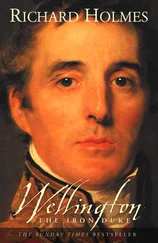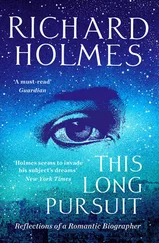‘As to those who are really capable of admiring Chatterton’s genius,’ said Hazlitt, who knew very well that Keats was in his audience, ‘I would only say that I never heard anyone speak of any of his works as if it were an old well-known favourite, and had become a faith and a religion in his mind. It is his name, his youth, and what he might have lived to have done, that excite our wonder and admiration. He has the same sort of posthumous fame that an actor of the last age has – an abstracted reputation which is independent of anything we know of his works’ (Lecture VII). The comparison with the actor is good, although with fifty years of film behind us now it loses some of its force. It is also rather an intriguing comparison. Hazlitt had no illusions about the true nature of Chatterton’s ‘forgeries’, but he still appears to have thought, unconsciously at least, in terms of the young prodigy playing out someone else’s part. In a literary and in a psychological sense this has a deep relevance to the life that Chatterton lived, and perhaps also to the death that he is reputed to have died.
Keats, incidentally, was disappointed with Hazlitt’s views, although it was almost certainly a previous lecture which kindled some real resentment against Hazlitt’s treatment of the poet to whom Keats had dedicated Endymion. The passage was probably this one, the closing peroration from Lecture VI; it is an important attitude and seems to express an element of jealousy, that essential but honest jealousy of the critic for the poet:
I cannot find in Chatterton’s works anything so extraordinary as the age at which they were written. They have a facility, vigour, and knowledge, which were prodigious in a boy of sixteen, but which would not have been so in a man of twenty. He did not show extraordinary powers of genius, but extraordinary precocity. Nor do I believe he would have written better, had he lived. Great geniuses, like great kings, have too much to think of to kill themselves; for their mind to them also ‘a kingdom is’. With an unaccountable power coming over him at an unusual age, and with the youthful confidence it inspired, he performed wonders, and was willing to set a seal on his reputation by a tragic catastrophe. He had done his best; and, like another Empedocles, threw himself into Aetna, to ensure immortality. The brazen slippers alone remain!
It is curious how the flourish, the joy with which Hazlitt the great Romantic critic flings off that last magnificent image to his Surrey Institute audience, effectively undermines his own case. He is responding, in spite of himself, in spite of his rational and deliberated critical strictures, to the quality of magnificence, of exhilaration, achieved by Chatterton’s life and work as a complete entity.
But by Lecture VII Hazlitt had altered his position, or at least his tone. ‘I am sorry that what I said in conclusion of the last Lecture respecting Chatterton, should have given dissatisfaction to some persons, with whom I would willingly agree on all such matters. What I meant was less to call in question Chatterton’s genius, than to object to the common mode of estimating its magnitude by prematureness.’ He then delicately delivers one of those republican bombshells that delighted Keats. ‘Had Chatterton really done more, we should have thought less of him … who knows but he might have lived to be poet-laureate?’ Yet overall his attitude remains the same, and his judgement on the prodigy-figure has a lasting and representative force, many times repeated, and especially sympathetic to the more sceptical and technical quality of appreciation almost universal today.
There is an anecdote retold in the diaries of the poet W. S. Blunt which may help to suggest the pitch, the emotional frequency, which the phenomenon of the youthful prodigy, in this case of Chatterton, is capable of reaching in the minds and imaginations of other men, and especially writers, irrespective of the lapse of time or the fluctuations of critical assessment. It concerns the Victorian lyric poet Francis Thompson. Blunt had the story in 1907 from Wilfred Meynell, who had become a close friend and mentor of Thompson’s before his death in the November of that year. ‘He – Thompson – used, before I knew him, to sleep at night under the Arches of Covent Garden where every quarter of an hour he was liable to be kicked awake by the police and told to move on. It was in an empty space of ground behind the Market where the gardeners threw their rubbish, that, just before, he had resolved on suicide. He then spent all his remaining pence on laudanum, one large dose, and he went there one night to take it. He had swallowed half when he felt an arm laid on his wrist, and looking up he saw Chatterton standing over him and forbidding him to drink the other half. I asked him when he had told me of it how he had known that it was Chatterton. He said “I recognised him from the pictures of him – besides, I knew that it was he before I saw him” – and I remembered at once the story of the money which arrived for Chatterton the day after his suicide’ (My Diaries, Vol. 2, p. 191).
An illusion. A drug-induced hallucination. After all, no authentic picture of Chatterton was ever made. Yes, but it is an interesting and powerful kind of illusion, that prevents a man from taking his own life; and incidentally correctly forecasts the arrival of help – Meynell’s letter to Thompson reached him the next day. Chatterton is one of those very few artistic figures – there are many more in religion and politics – who seem at times to have taken command of certain areas of the psychic landscape. Their image has been conjured up, and their presence has produced a palpable effect. It can only be described delicately, tentatively. One is not talking about ghosts, although Chatterton with his marvellous instinct for the Gothic would undoubtedly have provided a classic specimen. Shelley, in his long poem Adonais on the death of Keats, wrote this:
When lofty thought
Lifts a young heart above its mortal lair
And love and life contend in it, for what
Shall be its earthly doom, the dead live there
And move like winds of light on dark and stormy air.
It is informative to read this without preconceptions about High Romantic eulogizing, but as a straight description in slightly old-fashioned language of an unusual condition of mind. The dead live there and move like winds of light on dark and stormy air. (Shelley’s quality of verbal helium, the absolute clarity with which it renders and uplifts mental processes, has long required calm reassessment.)
The point is important for two reasons. First, because it suggests how the subject of Chatterton has always appealed to responses and judgements far deeper than mere literary taste. We encounter this again and again. To put it more sharply, it appeals to the recurrent need to idealize the image of others, and to interpret historical events and artistic achievements as the expression of something, by definition inexplicable, called ‘genius’. It appeals to our need to reassure ourselves with the past, and to see our own desires, and perhaps even our own faces, somehow magically canonized in the pale indistinct features of the wonderfully – but safely – dead. One has to be aware of that from the outset.
Second, it is – like Hazlitt’s actor comparison – suggestive of something that happened most powerfully and dramatically in Chatterton’s own mind.
2 ‘To the Garret quick he flies’
Chatterton was born in Bristol in November 1752 and he never seems to have got over it. He was never reconciled to his circumstances: always he was looking for some alternative place, or alternative age. Latterly, as for Rimbaud in Charleville, the capital city began to exercise an hypnotic attraction and he staked everything on getting there and taking it by storm.
Читать дальше












